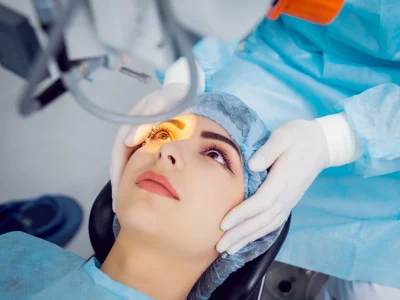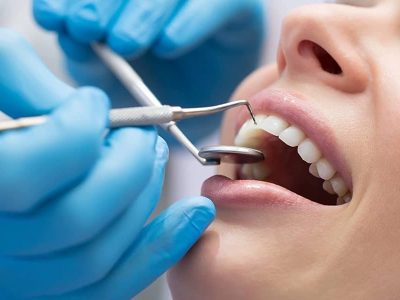Hypertrophic cardiomyopathy is such a kind of disease in which the heart muscle becomes abnormally thick and it makes it difficult for the heart to pump.
Hypertrophic cardiomyopathy often goes undiagnosed because many people with the disease have few, if any, symptoms and are able to lead normal lives without significant problems.
Symptoms of hypertrophic cardiomyopathy
Following are the signs and symptoms that you can face during hypertrophic cardiomyopathy:
- Shortness of breath, especially when exercising.
- Fainting During or just after exercise or exertion.
- Chest pain, especially when exercising.
- The sensation of a rapid heartbeat.
- Heart murmur, which a doctor can detect by listening to your heart.
Causes of hypertrophic cardiomyopathy
Hypertrophic cardiomyopathy is usually caused by abnormal genes that cause the heart muscle to thicken abnormally. People with hypertrophic cardiomyopathy also have an abnormal arrangement of the heart’s muscle cells. This disorder can contribute to arrhythmia in some people.
The severity of hypertrophic cardiomyopathy varies widely. Most people with hypertrophic cardiomyopathy have a form of the disease in which the wall between the heart’s two lower chambers ( ventricles ) becomes enlarged and restricts blood flow to the heart.
Sometimes hypertrophic cardiomyopathy occurs without significant blood blockage. However, the main pumping chamber can stiffen, reducing the amount of blood the ventricle can hold and the amount pumped to the body with each heartbeat.
Risk factors
Hypertrophic cardiomyopathy is usually inherited. There is a 50% chance that the children of a father with this condition will inherit a genetic mutation for the disease.
complications
Many people with hypertrophic cardiomyopathy do not experience significant problems. But some people experience complications including:
- atrial fibrillation. The thickened heart muscle, as well as an abnormal structure of the heart cells, can affect the normal function of the heart’s electrical system, resulting in rapid or irregular heartbeats.
- Sudden cardiac death. This type of death occurs in 1% of people with hypertrophic cardiomyopathy.
- Obstructed blood flow. In many people, thickened heart muscle blocks blood flow out of the heart.
- Dilated cardiomyopathy. Over time, a thickened heart muscle can become weak and ineffective.
- Problems with the mitral valve. The thickened heart muscle can leave a small space for blood flow, causing blood to enter the heart faster and with more force.
- Heart failure. The thickened muscle of the heart can eventually become too stiff to properly fill with blood.
Prevention
Because hypertrophic cardiomyopathy is hereditary, it cannot be prevented. But it’s important to identify the condition as early as possible to get treatment and prevent complications.
Preventing sudden death
Implantation of a cardioverter-defibrillator has been shown to help prevent sudden cardiac death, which occurs in 1% of people with hypertrophic cardiomyopathy.
Diagnosis of hypertrophic cardiomyopathy
Your doctor can review your medical and family history, discuss your signs and symptoms, and conduct a physical exam. Your doctor may order different tests to make the diagnosis.
Evidence
Echocardiogram: Your doctor may recommend an imaging test called an echocardiogram to diagnose the condition. This test allows your cardiologist to see if your heart muscle is abnormally thick if your blood flow is obstructed, and if your heart valves are moving normally.
Some additional tests may be ordered to look for other defects and help your cardiologist determine the most appropriate treatment for your condition.
- Electrocardiogram.
- Stress test.
- Holter monitoring.
- Cardiac magnetic resonance.
- Cardiac catheterization.
family monitoring
If you have a direct relative who suffers from this condition, the cardiologist may recommend that the following studies be carried out.
- Genetic studies.
- Echocardiogram.
Treatment
The goal of treatment for hypertrophic cardiomyopathy is to relieve symptoms and prevent sudden cardiac death in people at high risk. Specific treatment varies depending on the severity of symptoms.
Options include:
- You may be given medication to relax the muscle and slow your heart rate so that your heart pumps more efficiently. If you suffer from atrial fibrillation, your doctor can prescribe some treatment so that it does not affect the problem.
- Minimally invasive septal ablation. In this procedure, a small piece of thick muscle is destroyed by injecting alcohol through a long, thin tube into the artery that supplies blood to the area.
- Cardioverter defibrillator implantation . Doctors may recommend this device if you have life-threatening heart rhythm disorders.
- Heart surgery to “cut” the muscle that is thickened; This can be done open heart or also with minimal invasion







Comments